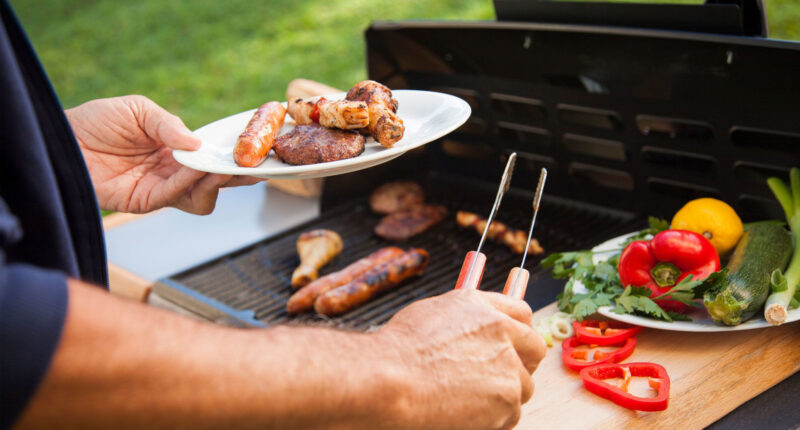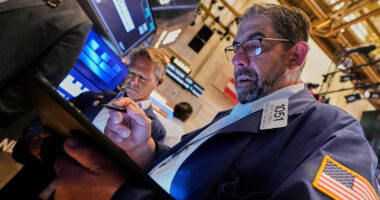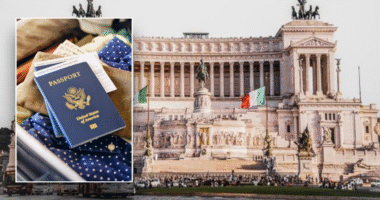Memorial Day marks the unofficial start to summer, but this year, it may also kick off a season of higher prices.
According to a report by CNN, small businesses specializing in the sale of products like beer, fireworks, and other summer essentials are struggling with increased costs following the implementation of new tariffs by the Trump administration on almost all imports to the United States.

Ernie Tedeschi mentioned that the cost of purchasing new barbecues or grills might not see significant changes this summer, as many large retailers had built up their inventory before the tariffs took effect.
Tomazl/iStockphoto/Getty Images via CNN Newsource
Here’s what you should know.
What could cost more – and what could cost less
Despite the expectations of price hikes due to President Donald Trump’s tariffs, it is worth noting that not all products are experiencing immediate price increases. Recent data shows that US inflation in April actually decelerated to its lowest level in over four years.
That means some summer products may still be spared from an inflationary squeeze as tariffs work their way through the economy, said Ernie Tedeschi, the former chief economist at the White House Council of Economic Advisers during the Biden administration and the director of economics at the Budget Lab at Yale University, which has been tracking the tariff impact on consumers.
But if you’re planning a cookout, tariff-induced price increases could hit your grocery bill sooner than other price hikes.
“Perishable goods like food are the imports that turn over more quickly,” Tedeschi said. “So the price that you see at any given time is more likely to reflect tariffs.”
The cost of buying a new barbecue to grill that food might still be stable, though, he said.
“Where there’s more of a delay on tariffs are things like durable goods, like a barbecue or grill,” Tedeschi said. “The reason is that retailers like Home Depot and Best Buy generally still have a large pre-tariff inventory. They will likely sell through that first before they start selling the tariffed goods that cost more.”
Another key ingredient to most barbecues also hasn’t been spared by tariffs: beer.
In April, President Donald Trump placed a 25% tariff on imported aluminum and steel, including empty aluminum cans and imported canned beer. About 38.5%, or 16.1 million barrels of imported beer, came in cans in 2024, according to the Brewers Association, a trade association for brewers.
Even local, US-based brewers are feeling cost pressures rise. Sheila Malone, a manager at Long Ireland Beer Company in Riverhead, New York, told CNN that rising expenses have left the future of her business uncertain.
Malone said she’s seen the cost of everything from hops to plastic cups rise over the last few years. Now, she estimates the cost of the aluminum cans her company purchases has risen between 10% and 15% this year.
“Every day we open up our social media and we see another brewery that we follow saying they are closing their doors, and that’s a really scary reality for us,” Malone said.
Long Ireland Beer Company recently raised its prices for the first time in years to keep up, said Malone, who added that the company is searching for lower-cost aluminum suppliers and seeking new ways to grow profits to stay afloat.
Memorial Day weekend also kicks off the busy season for fireworks businesses.
Douglas Burda, the CEO of Red Apple Fireworks, said the majority of fireworks are imported from China, which has been producing fireworks for hundreds of years. There are very few businesses that manufacture fireworks in the United States, Burda noted.
On April 10, tariffs on nearly all Chinese imports, including fireworks, climbed as high as 145% as a tit-for-tat trade conflict between China and the United States escalated. About a month later, the Trump administration announced it would temporarily lower the tax on Chinese imports to 30%.
Burda said he hasn’t had to raise prices yet, since his company has stockpiled enough fireworks to last through the summer in its large warehouse and retail spaces.
However, Americans who buy fireworks at roadside stands will likely face higher prices this summer due to tariffs, Burda said.
“Consumers by and large buy fireworks at the last minute on the side of the road. You’re always going to see higher prices when you do that,” Burda said. “But now, for certain, those already-high prices are going to be even higher.”
However, there may be one place to find savings if you are one of the nearly 40 million Americans traveling by car this Memorial Day.
The national average price of a gallon of gasoline is expected to be $3.08 on Memorial Day, according to projections released Tuesday by fuel savings platform GasBuddy. That is the lowest gas price for Memorial Day weekend since 2021.
American-made
For many Americans, Memorial Day is about more than pool parties and picnics. It is a day dedicated to honoring and remembering the people who died while serving in the US military.
Americans who may be looking to purchase an American flag this holiday weekend will have a harder time finding cheaper flags produced overseas this year, said Reggie VandenBosch, who works at Valley Forge Flag Company, one of the largest American flag manufacturers.
That’s because earlier this month, a major shipping loophole, known as the de minimis exemption, which allowed shipments of goods worth $800 or less to come into the United States duty-free, expired. Now those lower-cost shipments are taxed between 30% and 54%.
Before the loophole was closed, e-commerce sites like Amazon had been flooded with cheaper flags claiming to be American-made.
“Many Americans don’t think of an American flag as being an American flag if it’s made offshore,” VandenBosch said. “Now that the de minimis loophole was eliminated, we’re already starting to see sales return on those platforms back to the domestic players.”
CNN’s Matt Egan contributed to reporting.
The CNN Wire™ & © 2023 Cable News Network, Inc., a Warner Bros. Discovery Company. All rights reserved.

















